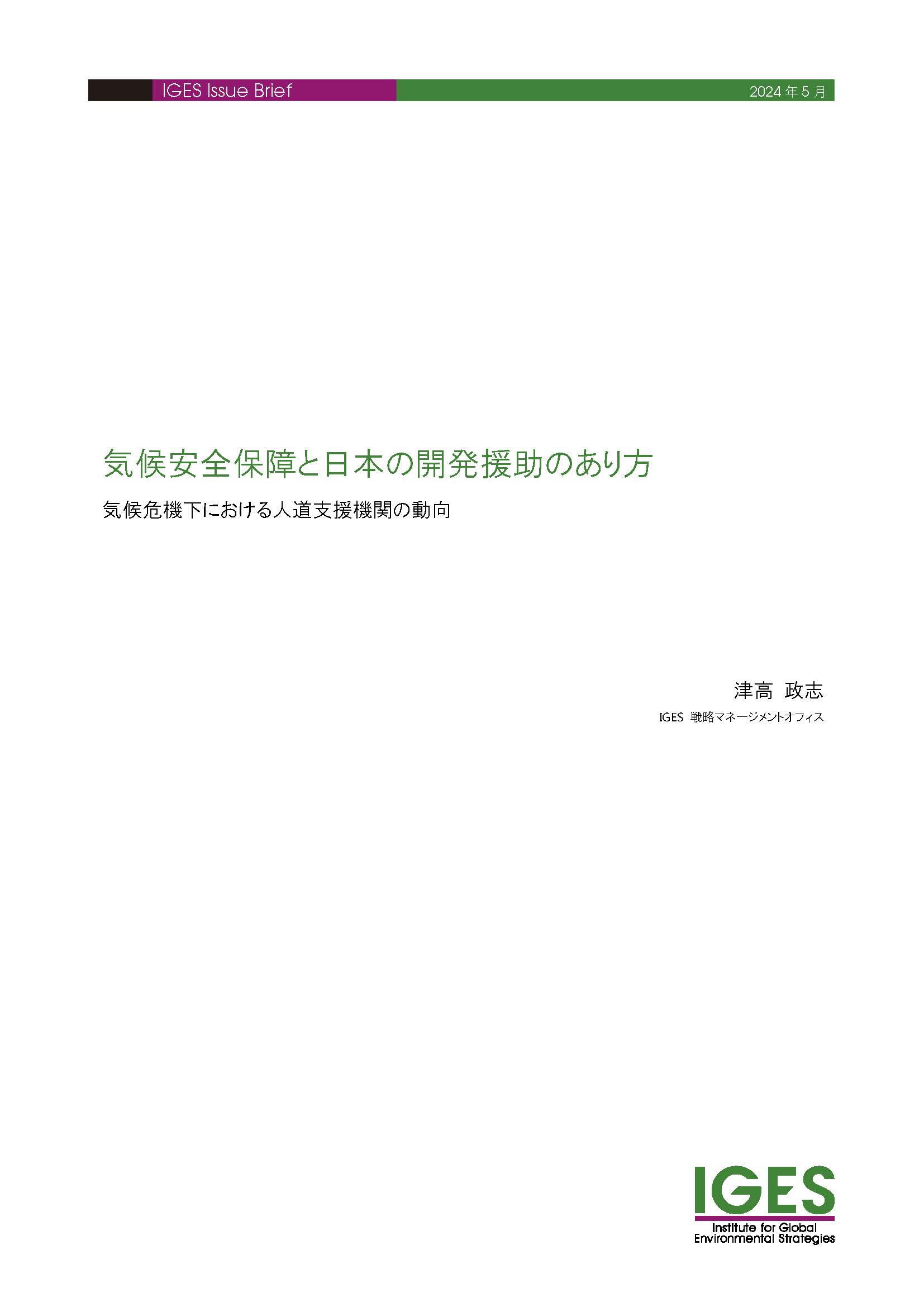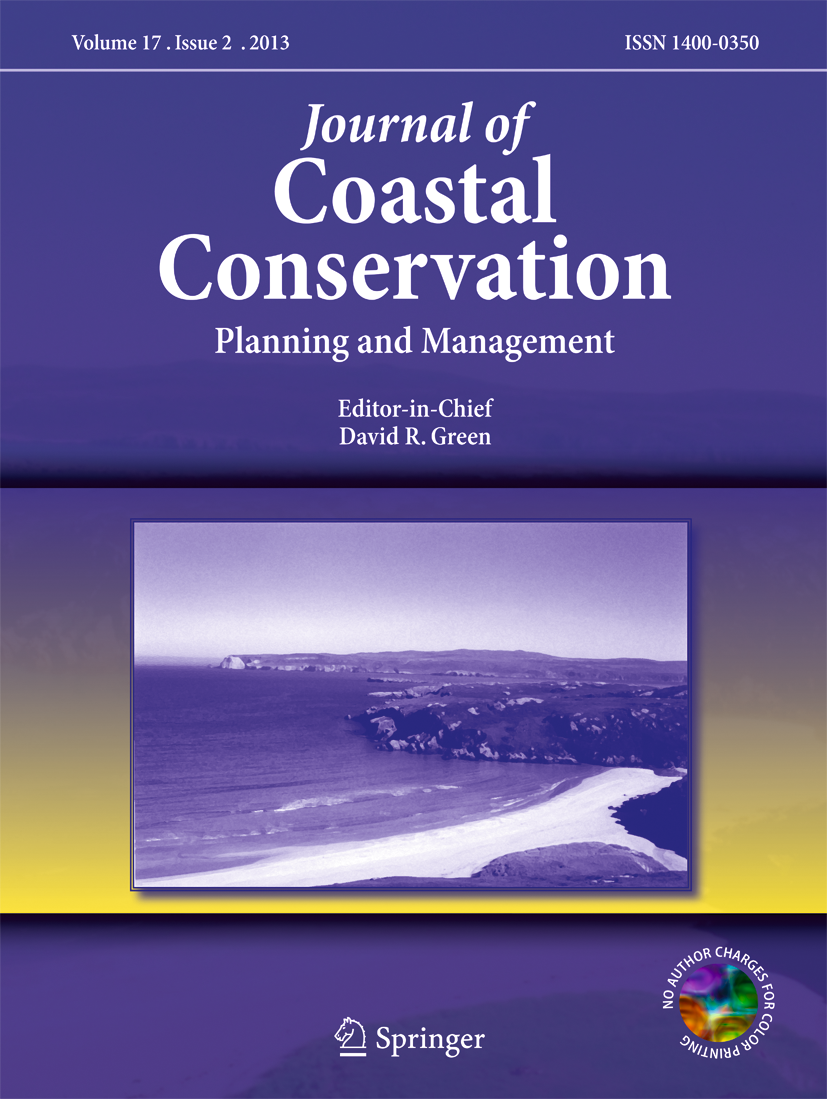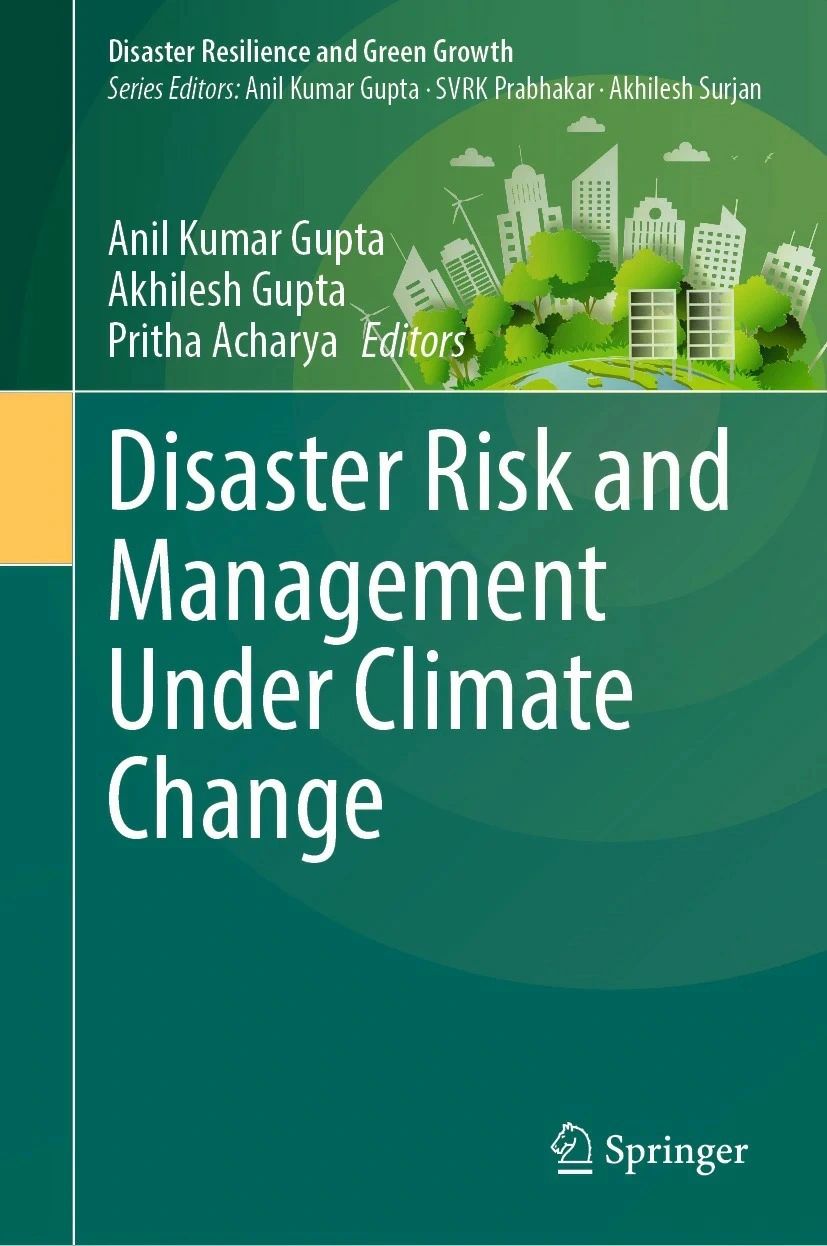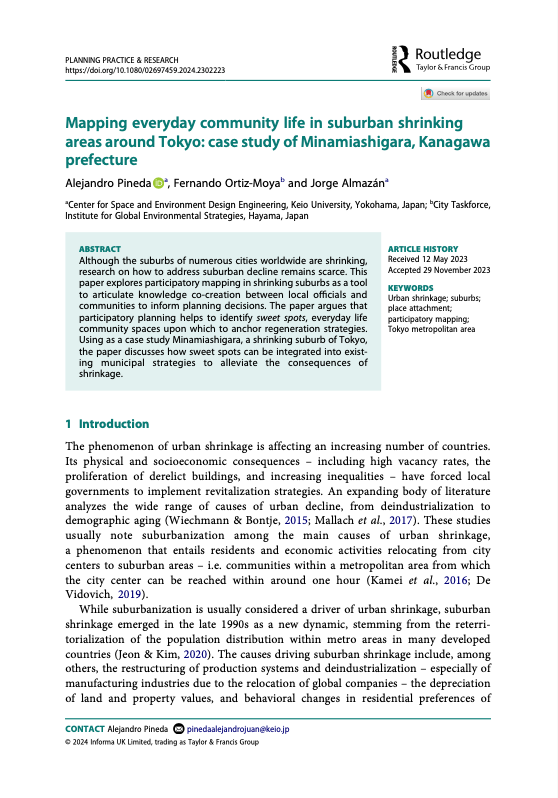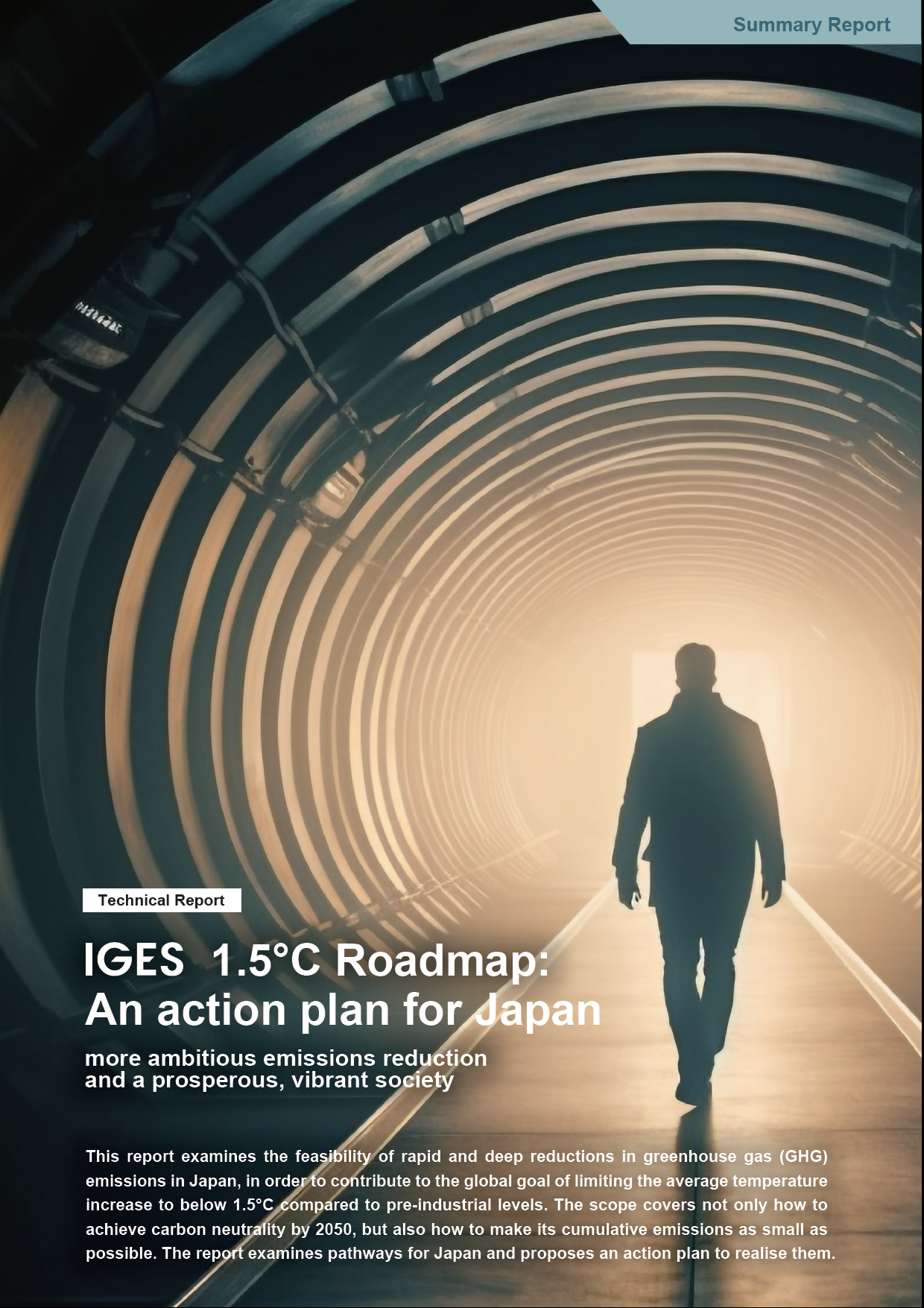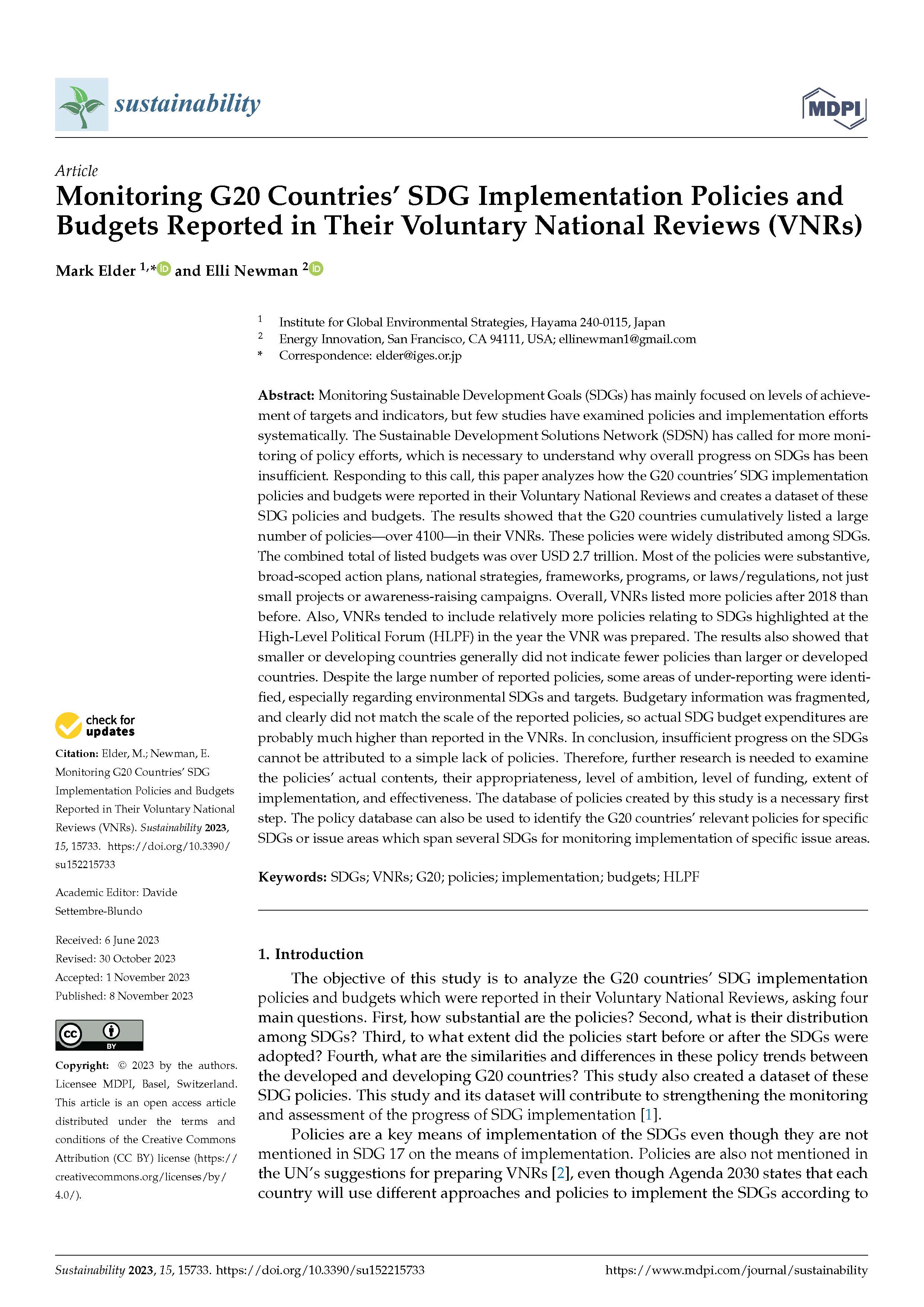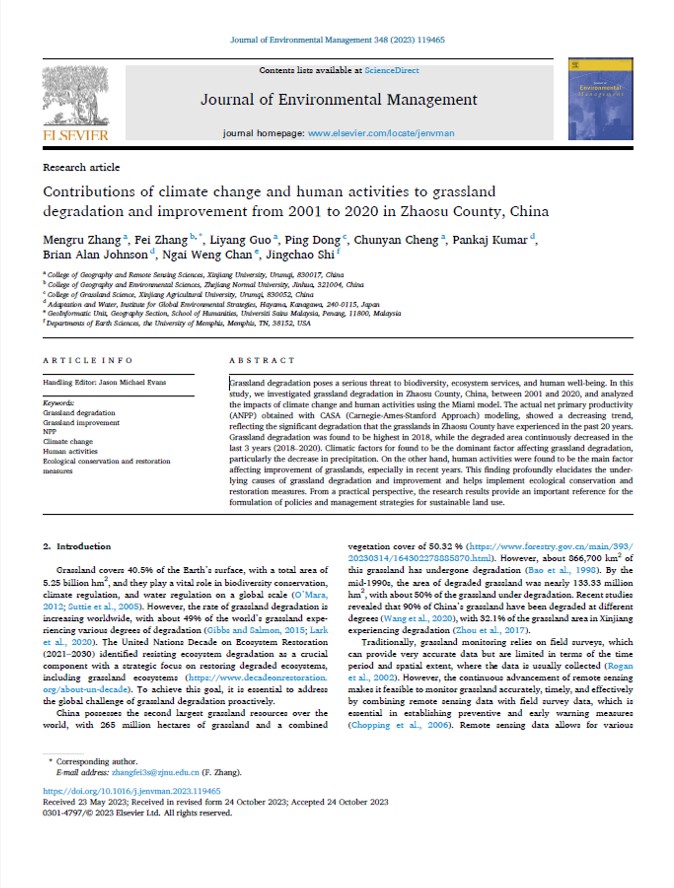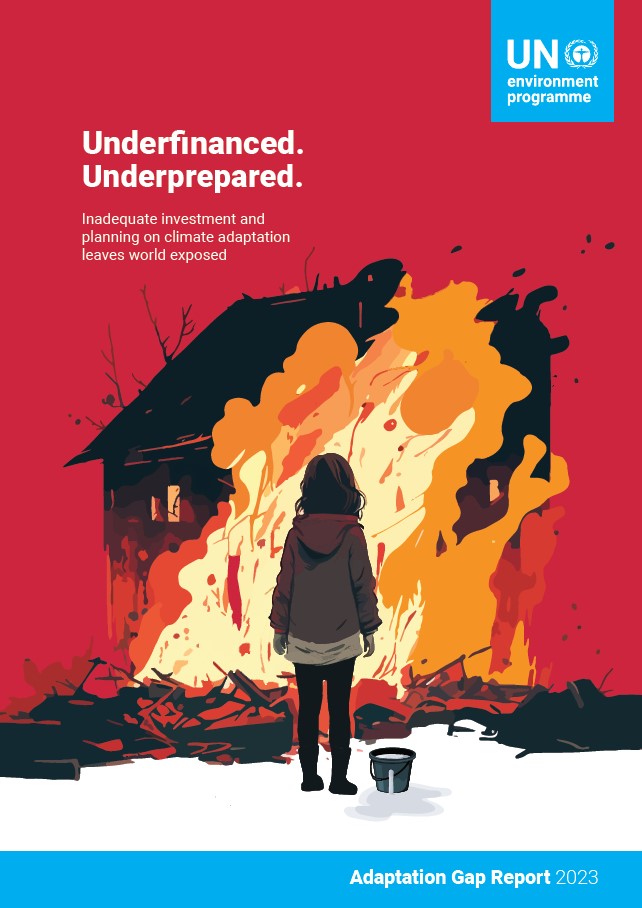地球規模で進む気候変動は、気象の激甚化、そして洪水や干ばつなどの自然災害を世界各地で引き起こし、新たな人道危機を生み出している。すでに社会基盤が脆弱化している紛争下の人々にとって、気候変動はリスクを増幅させる要因にもなっている。気候変動の負の影響が人類の発展や国際政治・経済の安定を阻むこの気候危機とも呼ばれる状況は、「気候安全保障」という視点から捉えることができる。人間の安全保障を掲げて開発援助に注力する日本にとって、気候危機下の人道支援の現状を分析・評価することは、今後の外交政策を展望する上で必須の課題だと言えるだろう。 気候安全保障は「日本国内に直接生じる安全保障リスク」と「日本国外で生じる安全保障リスクから波及して生じる日本の安全保障リスク」の2つに分類できる。本稿では...
- Clear all
- Topic: (-) Adaptation
- Topic: (-) Green Jobs
- Topic: (-) Sustainable Societies
Results 1 - 10 of 1413 (Sorted by date)
In Journal of Coastal Conservation
Globally, mangroves have been promoted to protect the coastal ecosystems and human settlements against weather vagaries including climate change impacts. However, climate change can also affect the mangrove ecosystems, affecting their ability to mitigate losses and damages caused by climate change. Recognizing the need to understand the impact of...
Keywords:
In Disaster Risk and Management under Climate Change
Equity and fairness have a high significance in Disaster Risk Reduction and Climate Change Adaptation as it is evident that disasters affect communities differently depending on their developmental levels, and social status. Any public policy or intervention on disaster risk reduction deals with communities that are at different ‘starting lines’ in...
Keywords:
In Planning Practice and Research
Although the suburbs of numerous cities worldwide are shrinking, research on how to address suburban decline remains scarce. This paper explores participatory mapping in shrinking suburbs as a tool to articulate knowledge co-creation between local officials and communities to inform planning decisions. The paper argues that participatory planning...
Keywords:
本レポートは、世界平均気温の上昇を産業革命前と比べて1.5℃以内に抑えるという目標の達成に向けて、2050年までにカーボンニュートラルを実現するだけではなく、累積排出量をできる限り小さくする観点から、日本国内で早期に大幅な温室効果ガス(GHG)排出量削減を果たす可能性を検討し、その実現のためのアクションプランをまとめたものである。 2024年4月2日更新 謝辞の追記、出典の追記、誤記の修正を行いました。 企業の方向けに使いやすく再構成した「 1.5℃ロードマップ - 脱炭素でチャンスをつかむ。未来をつくる。 」もご活用ください。
This report examines the feasibility of Japan not only achieving carbon neutrality by 2050, but also making significant reductions in greenhouse gas (GHG) emissions, so as to make its cumulative emissions as small as possible, thereby contributing to the global goal of limiting the average temperature increase to below 1.5°C compared to the pre...
In The Climate Technology Progress Report 2023
Understanding institutional settings and governance processes is critical to the effective delivery of climate technology solutions for low-carbon and climate-resilient development in Asian cities. Creating the appropriate enabling environment for the development and transfer of climate technologies becomes imperative in this context. This requires...
In Sustainability
Monitoring Sustainable Development Goals (SDGs) has mainly focused on levels of achievement of targets and indicators, but few studies have examined policies and implementation efforts systematically. The Sustainable Development Solutions Network (SDSN) has called for more monitoring of policy efforts, which is necessary to understand why overall...
In Journal of Environmental Management
Grassland degradation poses a serious threat to biodiversity, ecosystem services, and human well-being. In this study, we investigated grassland degradation in Zhaosu County, China, between 2001 and 2020, and analyzed the impacts of climate change and human activities using the Miami model. The actual net primary productivity (ANPP) obtained with...
In Adaptation Gap Report 2023: Underfinanced. Underprepared. Inadequate investment and planning on climate adaptation leaves world exposed
▶ In the United Nations Framework Convention on Climate Change (UNFCCC), loss and damage has emerged as a third key pillar of climate policy, alongside mitigation and adaptation, to address ever-increasing climate impacts in developing countries that are particularly vulnerable to the adverse effect of climate change. ▶ Losses and damages arise...
Keywords:

